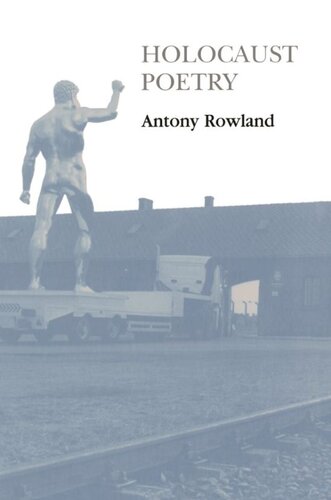

Most ebook files are in PDF format, so you can easily read them using various software such as Foxit Reader or directly on the Google Chrome browser.
Some ebook files are released by publishers in other formats such as .awz, .mobi, .epub, .fb2, etc. You may need to install specific software to read these formats on mobile/PC, such as Calibre.
Please read the tutorial at this link: https://ebookbell.com/faq
We offer FREE conversion to the popular formats you request; however, this may take some time. Therefore, right after payment, please email us, and we will try to provide the service as quickly as possible.
For some exceptional file formats or broken links (if any), please refrain from opening any disputes. Instead, email us first, and we will try to assist within a maximum of 6 hours.
EbookBell Team

4.0
76 reviewsUnder the umbrella term 'Holocaust poetry', this book argues that distinctions need to be made between the writing of Holocaust survivors and those who were not involved in the events of 1933 to 1945. This study focuses on the post-Holocaust writers Sylvia Plath, Geoffrey Hill, Tony Harrison and Ted Hughes, while also stressing the links between them and the Holocaust poetry of Paul Celan, Miklós Radnóti, Primo Levi and János Pilinszky.
Developing his theory of 'awkwardness' Antony Rowland argues that post-Holocaust poetry can play an important part in our understanding of Holocaust writing by stressing its self-conscious, imaginative engagement with the Holocaust, as well as the literature of survivors. The book illustrates that 'awkward' poetics enable post-Holocaust poets to provide ethical responses to history, and avoid aesthetic prurience. This probing and sensitive reassessment of Holocaust-related poetry will appeal to academics and students working in the areas of Holocaust Studies, contemporary poetry, and twentieth-century literature in general.